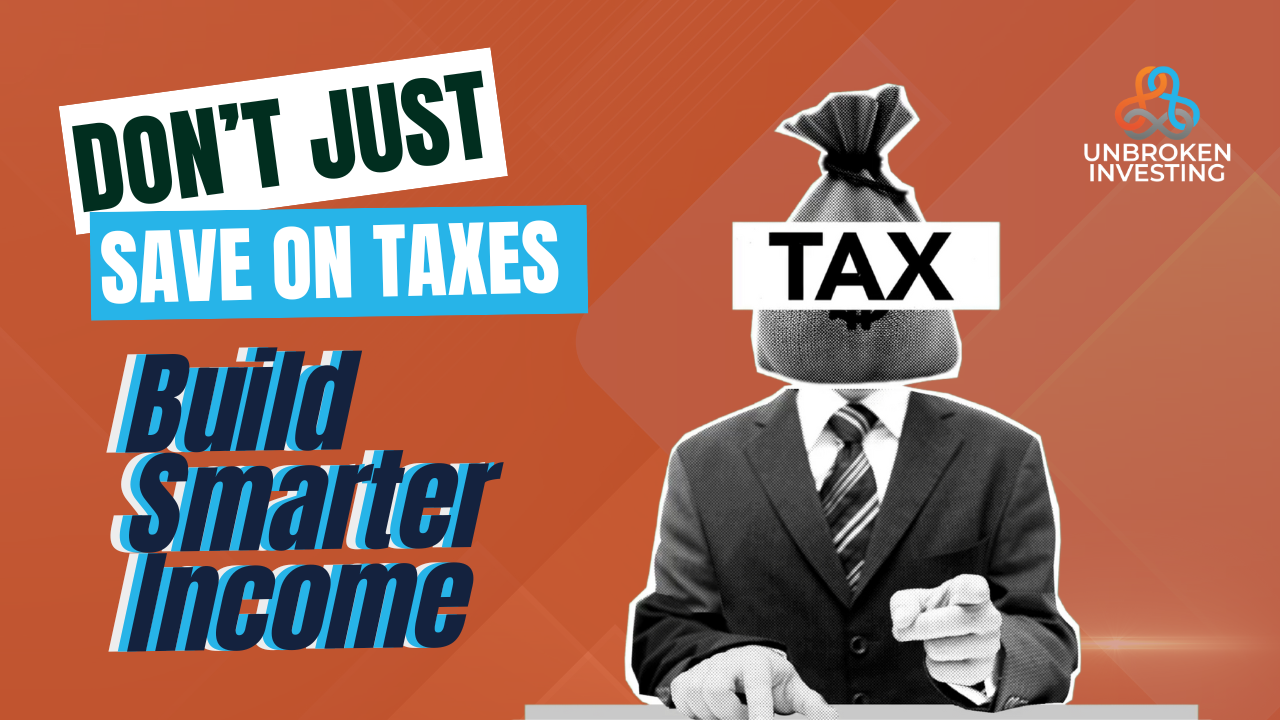💡 Don’t Just Save on Taxes — Build Smarter Income
Jun 12, 2025
For years, investors have been obsessed with one thing during tax season: deductions. But in 2025, the smartest investors aren’t just looking to save a few bucks on taxes — they’re reengineering how their income flows in the first place.
If you're still focused only on what to write off, you're thinking too small.
Smart income isn’t just about how much you make. It’s about how much you keep — consistently, legally, and without headaches. Here's how today's wealth builders are turning their portfolio into a tax-optimized income machine.
🧱 1. Asset Allocation That Reduces Tax Drag
Not all income is created equal.
- Earned income (from a job or active business) gets hit with the highest taxes.
- Portfolio income (dividends, interest, capital gains) varies in tax treatment.
- Passive income (from real estate, syndications, or royalties) often offers the best mix of cash flow and tax breaks.
Top investors are rebalancing their portfolios with this in mind — shifting from high-tax income to strategically structured income that lowers tax drag before they ever file.
🏡 2. Real Estate Still Wins — If You Leverage It Right
It’s not news that real estate has tax advantages. What’s new is how people are using them.
- Bonus depreciation and cost segregation are being used aggressively in 2025 to offset income from other investments.
- LPs (limited partners) in real estate deals can often receive paper losses that offset other passive income — even when the deal is cash-flowing.
- Certain structures allow for 1031 exchanges, letting you defer taxes on capital gains while upgrading your portfolio.
The result? You’re not just earning more… you're keeping more.
🏦 3. Legal Structures That Shield More Than Just Liability
If you’re still holding all your assets personally, you’re playing the game without a helmet.
Investors are increasingly using:
- LLCs to isolate income and expenses
- S-corps to manage self-employment taxes
- Holding companies for asset protection and multi-business control
Smart structuring helps:
- Separate your personal and investment finances
- Lower your audit risk
- Provide flexibility for future growth or sale
You don’t need to be ultra-wealthy to use these — you just need to be intentional.
📉 4. Loss Harvesting Isn’t Just for Stocks Anymore
Most people associate tax-loss harvesting with selling stocks at a loss to offset gains. But now, that same approach is being used across asset classes:
- Crypto losses can be harvested year-round (no wash-sale rule)
- Private placements that underperform can create paper losses
- Even certain real estate depreciation losses can be harvested for maximum effect
It's not about losing money — it’s about being smart with the downside when it happens.
🧠 5. Think Like an Income Architect, Not a Taxpayer
The bottom line: tax strategy should be baked into your income planning — not just tacked on in April.
The smartest investors in 2025 are doing three things:
- Building multiple streams of income
- Ensuring those streams are tax-aware
- Using systems, teams, and legal tools to automate and optimize along the way
🔑 Final Thought: Don’t Just Fight Taxes. Design Around Them.
Taxes are inevitable. But overpaying is optional.
Rather than obsess over deductions, shift your focus to designing income streams that work with the tax code — not against it. It’s not about being tricky; it’s about being intentional.
If your goal is to build wealth that lasts — income that buys back time — you can’t afford to think like a consumer. You need to think like a strategist.
Want more insights like this delivered in your inbox?
Unbroken Investing brings you the tools, ideas, and vetted opportunities to make your money work harder — and smarter.
Because real wealth isn’t just built. It’s designed.

